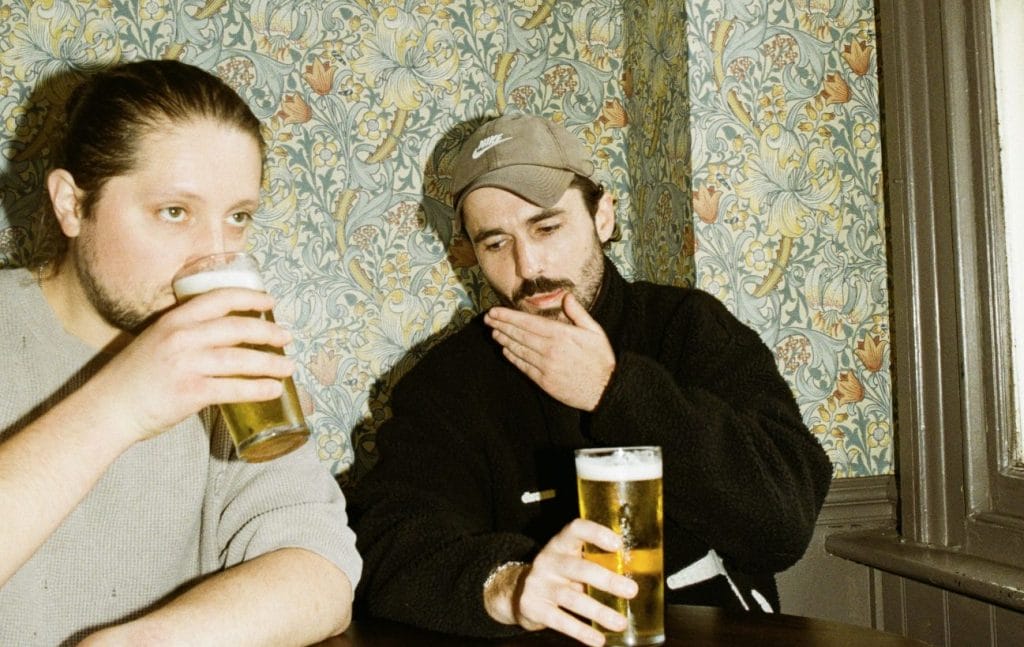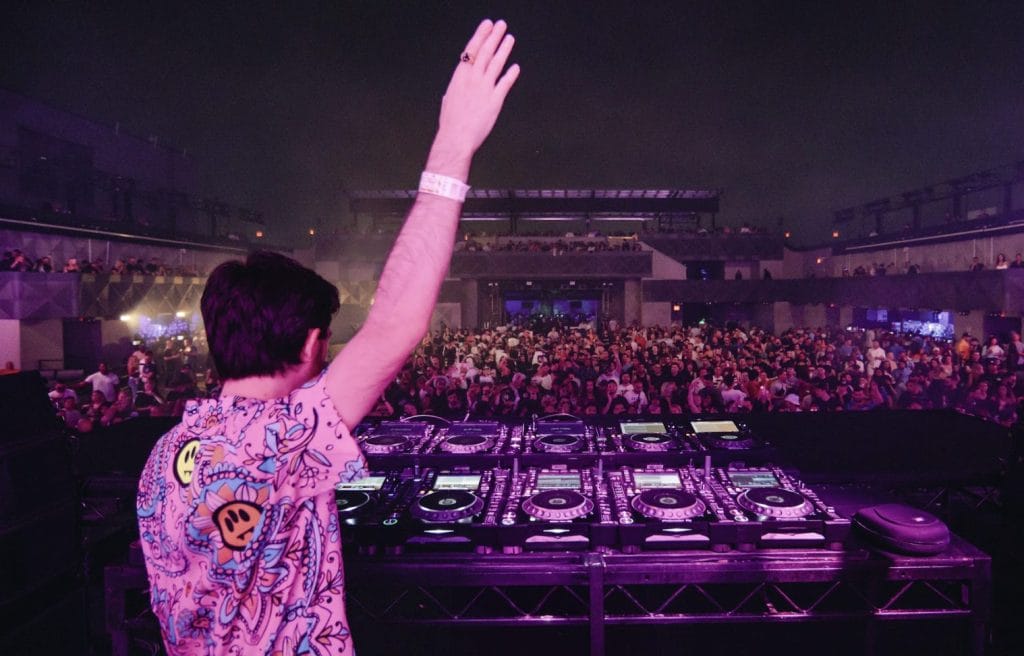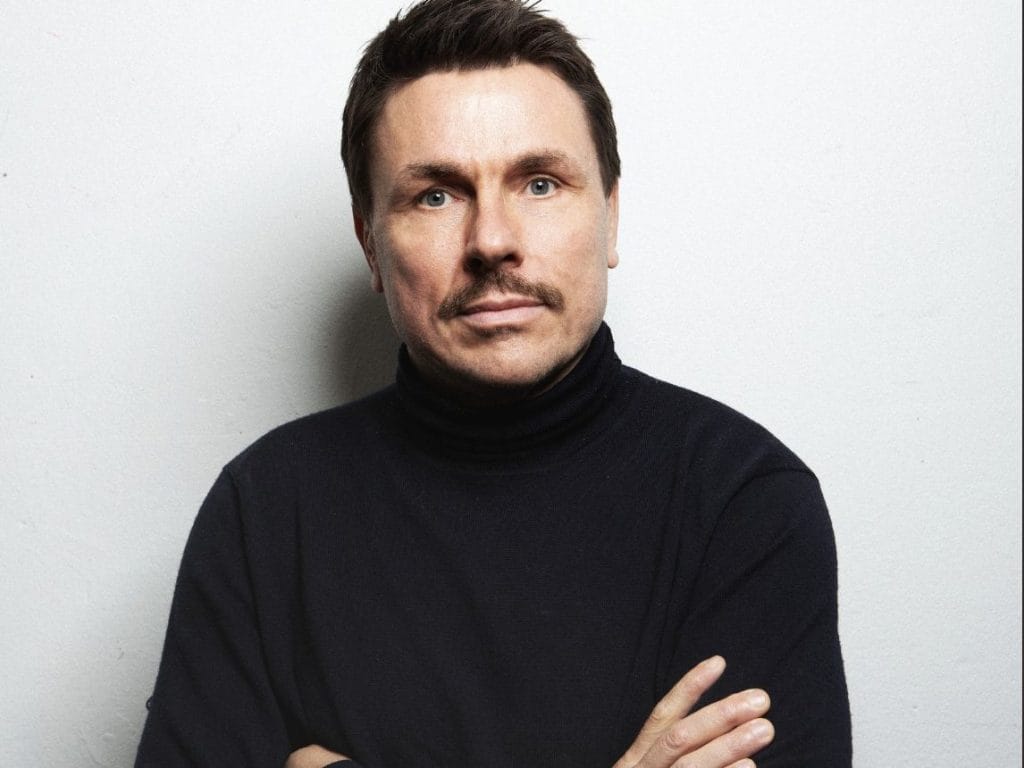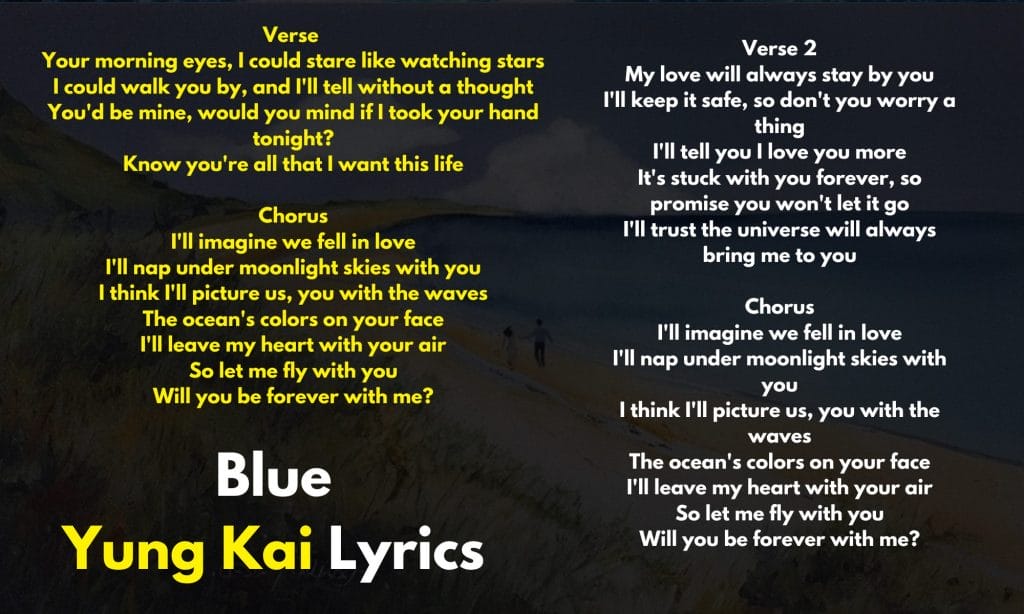Every once in a while, a song gets stuck in your head — not just because it sounds good, but because it feels like it’s trying to say something. Yung Kai’s “Blue” is one of those songs. It’s dreamy, clean, slow in all the right places, and packed with lines that feel like little moments you’ve either lived through or wished you had. It’s the kind of song that feels simple on the surface, but the more I listened, the more I started to wonder: what if there’s more going on here than we think?
That’s where I come in.
I’ve got a background in English lit and creative writing, and I can’t help but hear songs like this the same way I read poetry. Not in a heavy, academic way — just as a habit of asking: what’s actually being said here, and how is it being said? In this breakdown, I will walk through the lyrics of “Blue” and offer my own reading of it. These are just my takes — nothing definitive — but I’ll be using some poetic comparisons and literary thinking to dig a little deeper into what makes the song resonate.
Now, if you’ve been anywhere near the internet lately, you’ve probably come across “Blue.” The track exploded on TikTok, pulled in hundreds of millions of streams, and somehow hit that perfect balance of sounding like a cozy throwback while still feeling really current.
Yung Kai, who started off posting covers from his bedroom, found his way into global playlists almost overnight — thanks in part to a moody little moonlight TikTok and a wave of user-generated content that gave the song a second life across Instagram, reels, and wedding playlists.
Which makes it a really good excuse to ask what literary history, and a little poetic close reading, might be able to tell us about why it hits so hard — and why it lingers.
“Blue” at a Glance — Three Quick Takeaways (Will Vance Style)
- It’s all imagined: Most of this song lives inside the speaker’s head. He’s not in love yet — he’s picturing what it would feel like. That’s where the magic is.
- The nature stuff is doing real work: All the stars, waves, and moonlight? It’s both scenery and emotional weight. It’s how the speaker feels things without saying them directly.
- This is a forever kind of question: “Will you be forever with me?” acts as the center of the song. That’s the one the rest of the lyrics quietly build toward.
Blue Yung Kai Lyrics
Blue Yung Kai Meaning
“Your morning eyes, I could stare like watching stars”
The song opens with this quiet, gentle line. The speaker is looking at someone’s eyes in the morning — a time when people are usually soft, quiet, and real. By saying they could stare like “watching stars,” the speaker is telling us this moment feels big and calm at the same time. Stars don’t move fast. You have to slow down and look closely. That’s what’s happening here: the speaker is fully focused on someone they care about.
This made me think right away of Sara Teasdale’s poem “Stars.” She writes, “Alone in the night / On a dark hill, / With pines around me spicy and still, / And a heaven full of stars / Over my head.” Teasdale uses stars to show peace and deep feelings — just like the song does. Both the speaker in the song and Teasdale’s speaker are still, watching, and feeling something quiet and powerful.
This first lyric line sets the tone for everything that follows. It’s not about rushing into love — it’s about watching, noticing, and feeling deeply. It’s about something slower and more thoughtful — like watching stars.
“Would you mind if I took your hand tonight?”
This line is small, but it means a lot. They’re asking gently. This shows respect and care — they want to hold hands, but only if the other person is ready. The word “tonight” makes it feel even more real, like they’re hoping for closeness soon, not just someday.
It’s followed by a big line: “Know you’re all that I want this life.” That tells us the speaker is thinking about tonight and they’re thinking long-term. They’re saying: You’re it. You’re the person I want, not just now, but for my whole life.
There’s a quiet mix of hope and boldness here. They’re imagining a future, but also putting their feelings out there. That mix reminded me of poems by Charlotte Mew, especially “I Have Been Through the Gates,” where she writes: “And the world is quiet under the moon.” It’s soft, like this moment — not loud, but full of feeling.
“I’ll imagine we fell in love”
This line is where the speaker really starts dreaming. They’re not saying they’re in love — they’re saying they’ll imagine it. That’s a powerful thing to admit. It means love might not be real yet, but it’s real in their heart. They’re building the whole feeling in their mind, hoping maybe it could become true.
I see this as a kind of romantic idealism. The speaker is painting a picture of what love could be. It’s soft, hopeful, and full of images from nature — the moonlight, the ocean, the air. These details tell us this dream of love is not small. It’s peaceful, beautiful, and a little bit magical.
This ties closely to what poets like Sara Teasdale and Charlotte Mew do. They both used nature to build emotional scenes. In “Stars,” Teasdale uses the night sky to show her own feelings. In “I Have Been Through the Gates,” Mew writes about stillness and moonlight the same way this song does.
The speaker is part of a long line of writers who use imagination and nature to explore love.
“I’ll nap under moonlight skies with you”
This is one of the most peaceful images in the song. The speaker isn’t talking about kissing or dancing — they just want to lie beside this person under the moon. That tells us a lot about the kind of love they want. It’s not fast or dramatic. It’s calm, gentle, and shared.
There’s something very special about choosing a moment like this to imagine. A nap means trust. You don’t fall asleep next to someone unless you feel safe. That adds another layer to the dream. The speaker wants closeness, but also comfort and peace.
Again, this reminds me of Charlotte Mew, who writes in a very soft and personal way about love and nature. Her line, “And now the flickering light falls soft on my tired eyes,” could fit right into this song. Both writers want to rest beside someone they love, surrounded by natural light and quiet.
“The ocean’s colors on your face”
This line paints a very visual picture. You can almost see it — waves nearby, light reflecting, the person’s face lit up by moving water. It’s gentle, but also very close. The speaker isn’t just imagining love — they’re seeing it. It feels real in their mind.
What makes this line strong is how it ties the person to the ocean. It’s part of them. This shows how the speaker’s emotions are tied to nature, just like Rabindranath Tagore often wrote. In “Unending Love,” Tagore says, “The memories of all loves merging with this one love of ours.” He blends people and the natural world into one — like the ocean coloring someone’s face.
The speaker wants to be close to this person, but also close to the world around them. That kind of connection — between people and nature — makes the dream feel even bigger.
“I’ll trust the universe will always bring me to you”
Now the song shifts from dreaming into trust. The speaker is saying: Even if we’re not together now, I believe we’ll find each other. That’s a big feeling. It means the speaker is not just hoping — they’re trusting something bigger than themselves.
This line made me think of Tagore’s “Unending Love.” In that poem, he writes: “In all my lives, in all my births, / The same love flows through me.” Tagore believed love could travel across time and space. The speaker in this song is saying something very close. They trust the universe, just like Tagore trusted the flow of love itself.
So even though the song started with looking at someone’s eyes, it’s grown into something cosmic. Now it’s about the stars, the ocean, and the whole universe working together to bring two people close.
“Will you be forever with me?”
This is the question the whole song builds toward. After dreaming, after trusting, after promising love — the speaker finally asks it out loud. This is the heart of the song. Everything else was leading up to this.
They don’t say, Will you go on a date with me? Or do you love me back? They ask: Will you be forever with me? That tells us this isn’t a short-term crush. This is someone thinking about love as something that lasts — like Tagore’s love through lifetimes or Teasdale’s stars that shine every night.
The repetition of this line in the final chorus gives it more weight. The first time it’s hopeful. The second time, it’s fuller. Now the speaker has shown how serious they are. They’ve shared the dream. They’ve made the promise. They’ve trusted the universe. All that’s left is to ask — and to hope.
Themes, Meanings, And Main Takeaways
What keeps pulling me back to “Blue” is how personal it feels without ever being heavy-handed. It’s full of these soft images — stars, waves, moonlight — and the speaker doesn’t over-explain anything. He just imagines. And that act of imagining is the meaning. There’s no clear timeline, no conflict, no “we broke up” or “we’re together” — it’s more like: I want this, I feel this, and maybe that’s enough. That kind of internal, quiet longing sits right in line with how Sara Teasdale wrote in “Stars.”
Her speaker just stands under the sky alone and feels something big, but says it in such a small way. And that’s exactly what Kai does in this song — especially in the first few lines where he says, “Your morning eyes, I could stare like watching stars.” That’s not a grand metaphor — that’s how someone talks when they’re full of feeling but still shy about it.
What makes the song resonate — and clearly, it does resonate, considering it’s been used in millions of TikToks, wedding videos, even fan edits of people’s favorite dramas — is that it builds love into a whole world. It’s not just “I love you.” It’s “I picture us by the waves” and “I’ll nap under moonlight skies with you.” There’s something in that tone that reminds me of Charlotte Mew, especially in poems like “I Have Been Through the Gates,” where love and landscape blend.
The setting becomes part of the emotion. And that’s exactly how “Blue” works.
That’s also why so many listeners in their 20s and 30s — who grew up on K-dramas and emotionally charged playlists — are drawn to it. They already know what it means to experience love through scenes, not speeches.
Then you get to that final section — “I’ll trust the universe will always bring me to you.” That’s where the song gently steps into something bigger than just a crush or even just romantic love.
That’s a spiritual moment.
A leap of faith.
And that’s exactly where Tagore’s “Unending Love” lands too. He writes about love as this force that stretches across lives, like, “In all my lives… the same love flows through me.” It’s not just “I love you,” it’s “this love has always been here, even before I met you.” And that belief — that love has its own rhythm, its own orbit — fits with how Kai talks about his writing process, too. He says songs just happen to him. They show up “in the shower,” “at school,” “when I see some flowers.” He doesn’t force it. He just waits for the feeling, trusts it, and follows it home.
That same quiet trust runs all the way through “Blue,” and in my opinion, that’s what gives the song its depth — it doesn’t reach for answers. It just stays with the feeling.
The post Blue Yung Kai Lyrics And Meaning: Seeing the Ocean, the Moonlight, and the Deeper Message appeared first on Magnetic Magazine.






